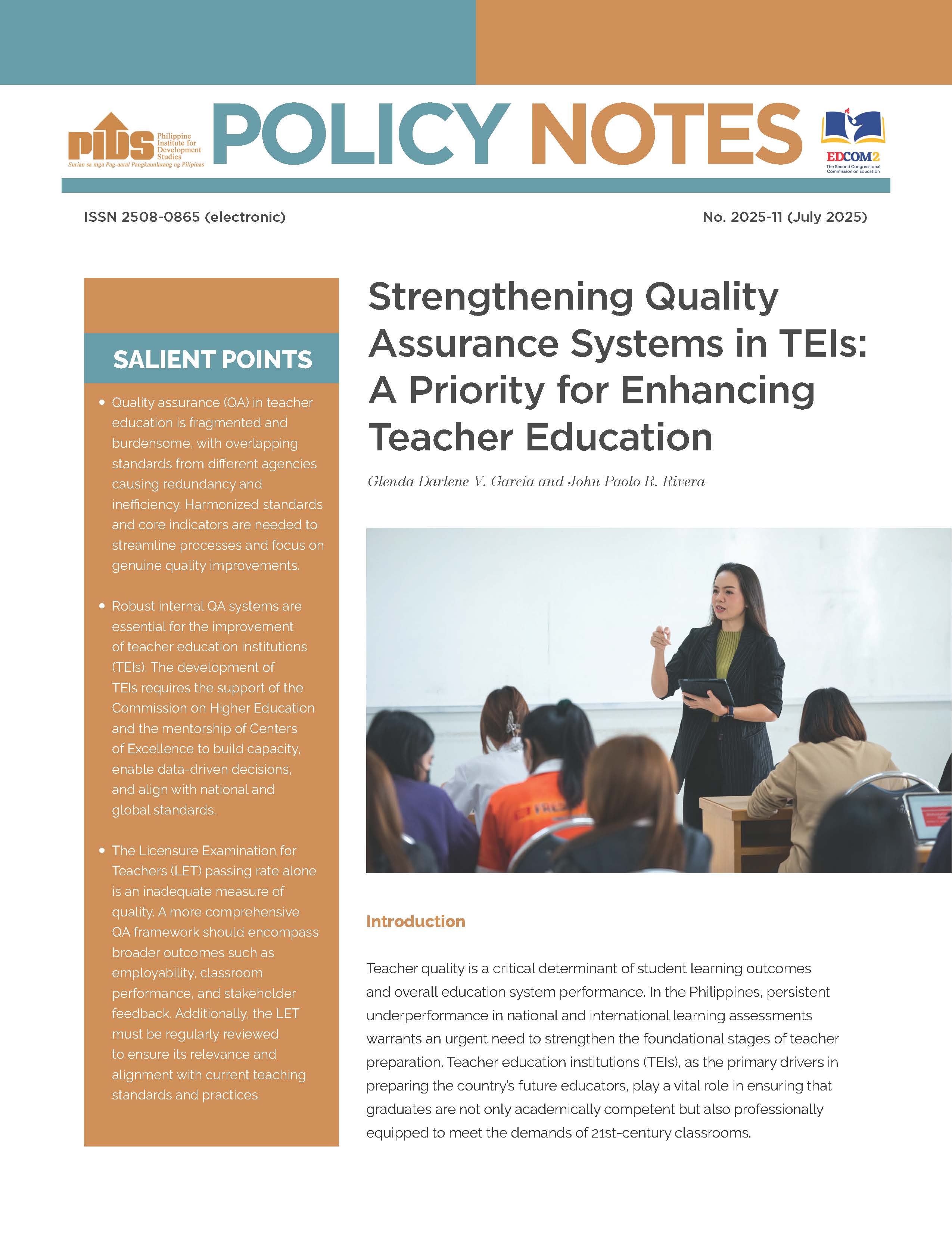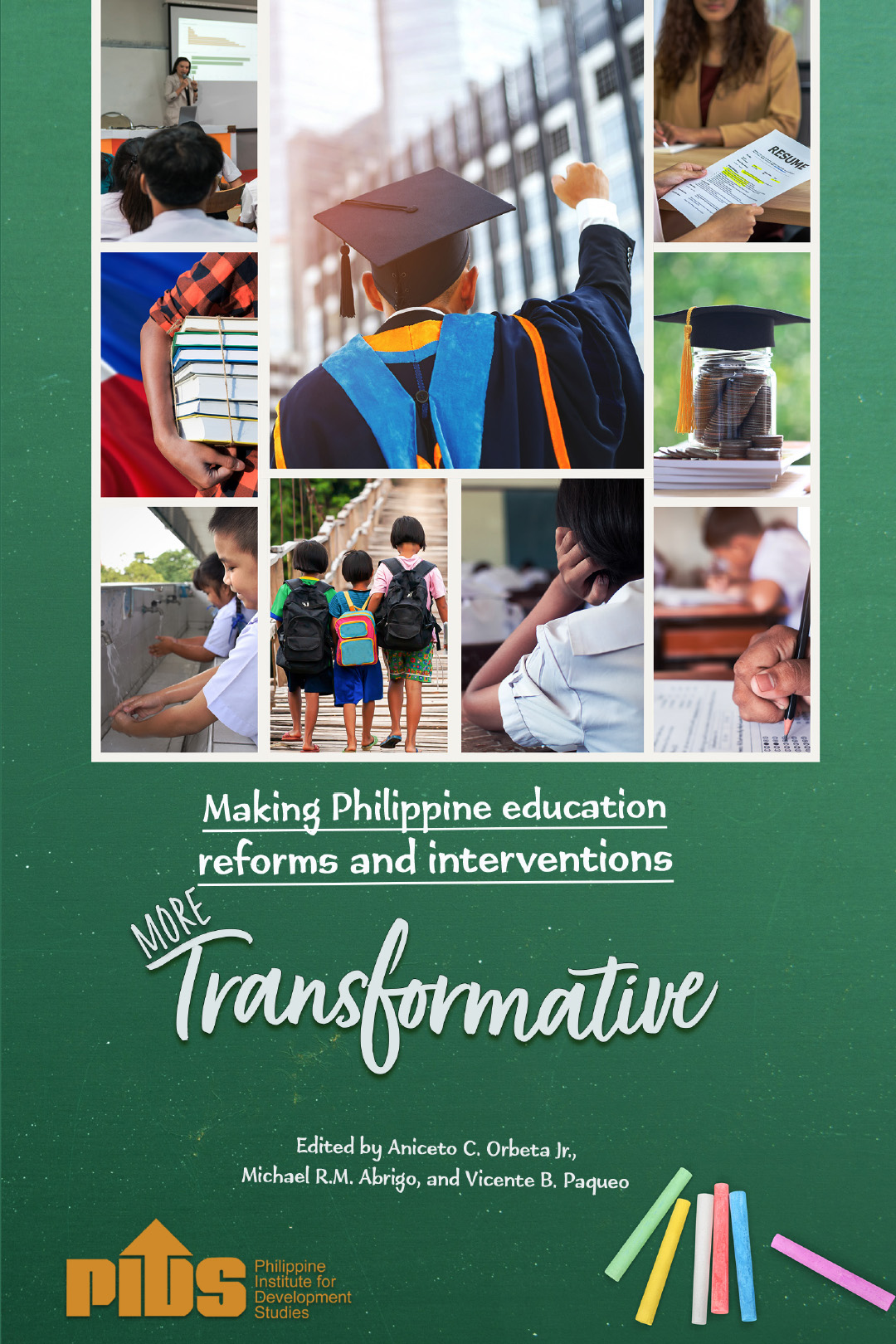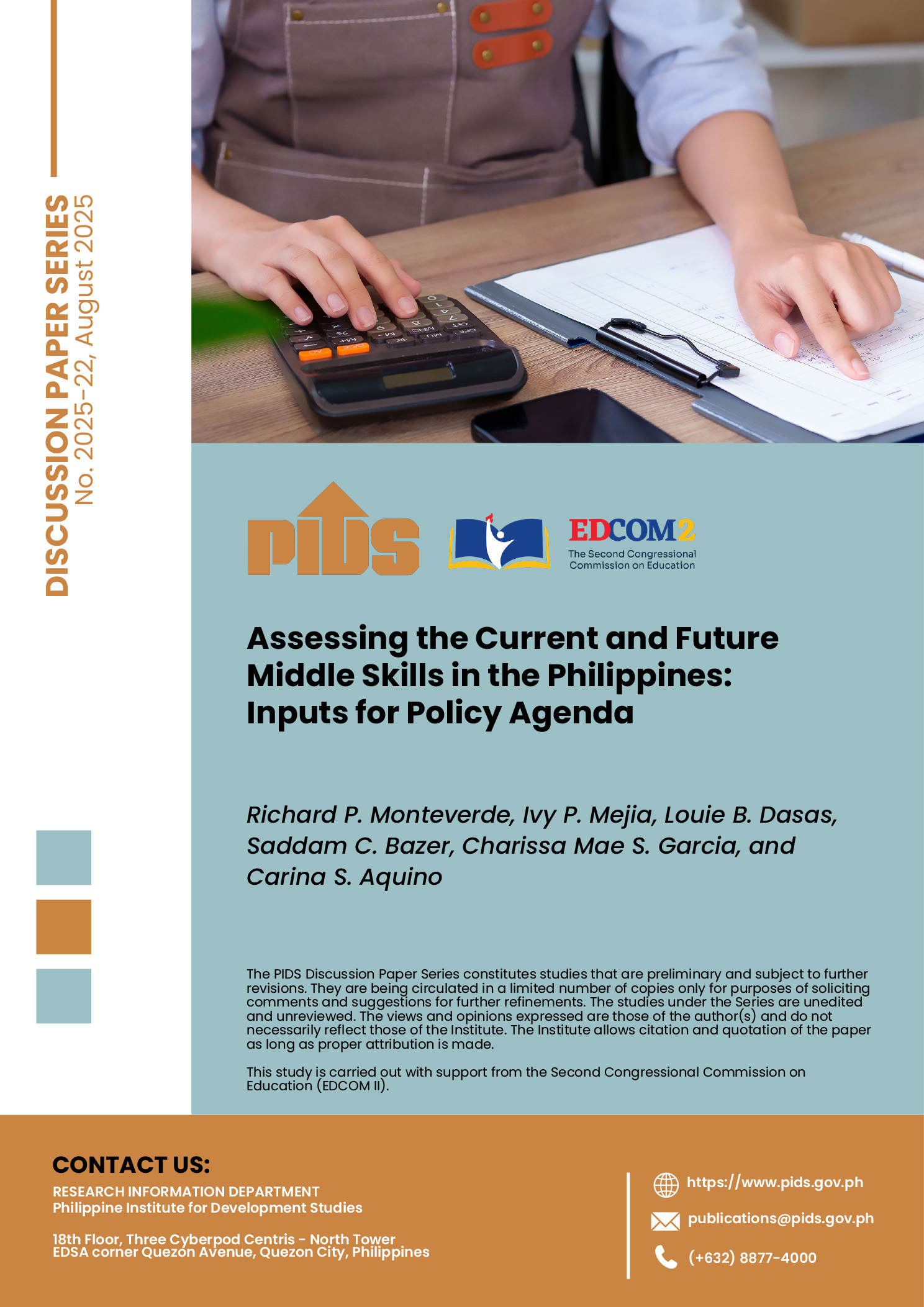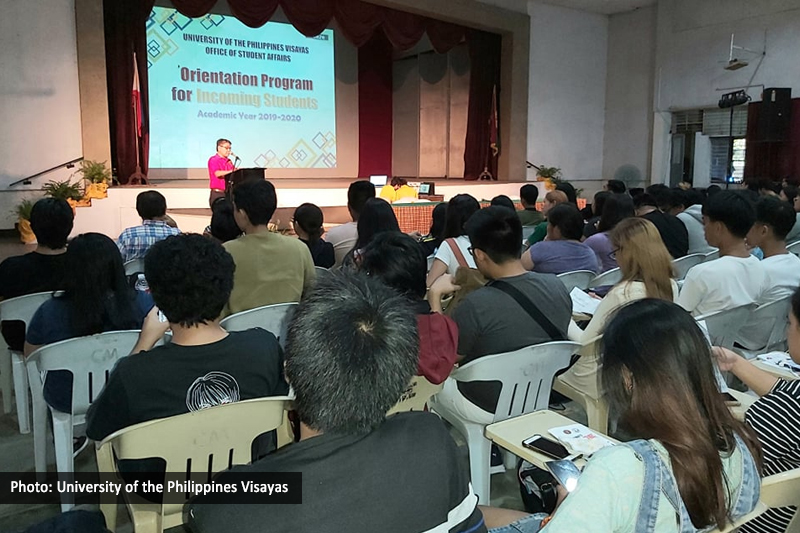"Out-of-school children prevalence has declined in almost all regions of the country," claims a joint study of state think tank Philippine Institute for Development Studies (PIDS) and the United Nations Children's Fund (UNICEF). The numbers are indicative of achievements and further challenges for basic education as a whole.
PIDS Senior Fellow Jose Ramon Albert and Assistant Professor Clarissa David of the University of the Philippines-Diliman College of Mass Communication delivered their collaborative report at the PIDS-UNICEF joint seminar last May 26. The results of the country report are summarized in a policy note released recently by PIDS titled "How Has Basic Education in the Philippines Fared and What Else Needs to Be Done?"
According to the report, the number of children who reach the final grade of primary school has increased since 2008. This serves as an important indicator of the decline of out-of-school children (OOSC) incidence.
The rate of OOSC to the total number of children in the 5- to 15-year-old bracket has declined by half between 2008 and 2012, from 11.7 percent to 5.2 percent. The rate of preprimary students rose from 35 percent to 48 percent between 2008 and 2011. On a closer inspection, the sharpest increase belongs to households headed by poorly educated individuals. This affirms that policies like mandatory and universal kindergarten have benefited the poor the most.
The difference in the rates of children going to preschool between the upper middle-income and the poorest have shrunk from 34.9 to 5 percent. Greater access to free kindergarten and other early childhood care and development programs (EECD), according to Albert and David, have acted as an `equalizing` force, helping reduce wealth and social class inequalities. In particular, they identified three interrelated factors: the mandatory kindergarten, the rise in the Department of Education’s (DepEd) budget with the implementation of the K-12, and the expansion of the conditional cash transfer program (the Patawid Pamilyang Pilipino Program or 4Ps).
Still, they emphasize the need to understand the nuances underneath. They recommend that further research must be taken to generate more comprehensive policies and program, particularly where secondary schools and gender disparity are concerned.
Current measures are in place, but there has only been modest improvements at the secondary level where maintaining school participation is more challenging. There are plenty of factors at play, with gender adding a complicated layer.
Boys have higher dropout rates, especially in high schools that have high student-teacher ratios. The explanation for this phenomena is rooted in prevailing cultural and socioeconomic mindsets.
According to David, for the poorest families who can only support the education of one child, they often prioritize the girls. The emphasis on the girls could be linked to the fact that many of the jobs that people think will get them out of poverty, such as nursing which is in-demand overseas, are dominated by women. Girls than boys are thus perceived to be more likely to send more money home than their male counterparts in the same industries. Another possible reason, also reflecting a strong female bias, is that educators and parents alike believe that young girls are much easier to educate, more likely to finish, more likely to excel, and less likely to get distracted.
The disparity in the tertiary level is even worse. David notes, "It's an issue that is so multifactorial that we really need to carefully study the problem."
Albert and David segregated the 42 recommendations stated in the OOSC Country Report into five area categories, namely: getting more children in the three- to five-year-old bracket enrolled in preschool, improving the quality of teaching and curricula, addressing the gender disparity in performance, bringing education to older OOSC, and supporting management efficiencies and effectiveness.
"Now that shortages are no longer the main story in basic education, the DepEd can get out of its cycle of just trying to keep up with the growing demand," say Albert and David.
The authors hope that the country can now focus on improving quality in a strategic manner and achieve the goals set in the K-12 law.
They also underscore the importance of strengthening data systems, commending the institutionalization of the Learner Information System. More initiatives to do research to generate evidence-based policies are needed, on top of performance-based budgeting, school-based management, and systematic evaluation of special programs—things that are not for the DepEd alone to accomplish.
"It's a common dream for all of us: aim for a nation where there is no out-of-school youth. We're almost there. We just need one big push," remarks DepEdDeed Secretary Armin Luistro at the seminar's forum, emphasizing that basic education needs above all, "community effort".
For access to the studies and presentations, visit http://www.pids.gov.ph/index3.php?pr=268
PIDS Senior Fellow Jose Ramon Albert and Assistant Professor Clarissa David of the University of the Philippines-Diliman College of Mass Communication delivered their collaborative report at the PIDS-UNICEF joint seminar last May 26. The results of the country report are summarized in a policy note released recently by PIDS titled "How Has Basic Education in the Philippines Fared and What Else Needs to Be Done?"
According to the report, the number of children who reach the final grade of primary school has increased since 2008. This serves as an important indicator of the decline of out-of-school children (OOSC) incidence.
The rate of OOSC to the total number of children in the 5- to 15-year-old bracket has declined by half between 2008 and 2012, from 11.7 percent to 5.2 percent. The rate of preprimary students rose from 35 percent to 48 percent between 2008 and 2011. On a closer inspection, the sharpest increase belongs to households headed by poorly educated individuals. This affirms that policies like mandatory and universal kindergarten have benefited the poor the most.
The difference in the rates of children going to preschool between the upper middle-income and the poorest have shrunk from 34.9 to 5 percent. Greater access to free kindergarten and other early childhood care and development programs (EECD), according to Albert and David, have acted as an `equalizing` force, helping reduce wealth and social class inequalities. In particular, they identified three interrelated factors: the mandatory kindergarten, the rise in the Department of Education’s (DepEd) budget with the implementation of the K-12, and the expansion of the conditional cash transfer program (the Patawid Pamilyang Pilipino Program or 4Ps).
Still, they emphasize the need to understand the nuances underneath. They recommend that further research must be taken to generate more comprehensive policies and program, particularly where secondary schools and gender disparity are concerned.
Current measures are in place, but there has only been modest improvements at the secondary level where maintaining school participation is more challenging. There are plenty of factors at play, with gender adding a complicated layer.
Boys have higher dropout rates, especially in high schools that have high student-teacher ratios. The explanation for this phenomena is rooted in prevailing cultural and socioeconomic mindsets.
According to David, for the poorest families who can only support the education of one child, they often prioritize the girls. The emphasis on the girls could be linked to the fact that many of the jobs that people think will get them out of poverty, such as nursing which is in-demand overseas, are dominated by women. Girls than boys are thus perceived to be more likely to send more money home than their male counterparts in the same industries. Another possible reason, also reflecting a strong female bias, is that educators and parents alike believe that young girls are much easier to educate, more likely to finish, more likely to excel, and less likely to get distracted.
The disparity in the tertiary level is even worse. David notes, "It's an issue that is so multifactorial that we really need to carefully study the problem."
Albert and David segregated the 42 recommendations stated in the OOSC Country Report into five area categories, namely: getting more children in the three- to five-year-old bracket enrolled in preschool, improving the quality of teaching and curricula, addressing the gender disparity in performance, bringing education to older OOSC, and supporting management efficiencies and effectiveness.
"Now that shortages are no longer the main story in basic education, the DepEd can get out of its cycle of just trying to keep up with the growing demand," say Albert and David.
The authors hope that the country can now focus on improving quality in a strategic manner and achieve the goals set in the K-12 law.
They also underscore the importance of strengthening data systems, commending the institutionalization of the Learner Information System. More initiatives to do research to generate evidence-based policies are needed, on top of performance-based budgeting, school-based management, and systematic evaluation of special programs—things that are not for the DepEd alone to accomplish.
"It's a common dream for all of us: aim for a nation where there is no out-of-school youth. We're almost there. We just need one big push," remarks DepEdDeed Secretary Armin Luistro at the seminar's forum, emphasizing that basic education needs above all, "community effort".
For access to the studies and presentations, visit http://www.pids.gov.ph/index3.php?pr=268












